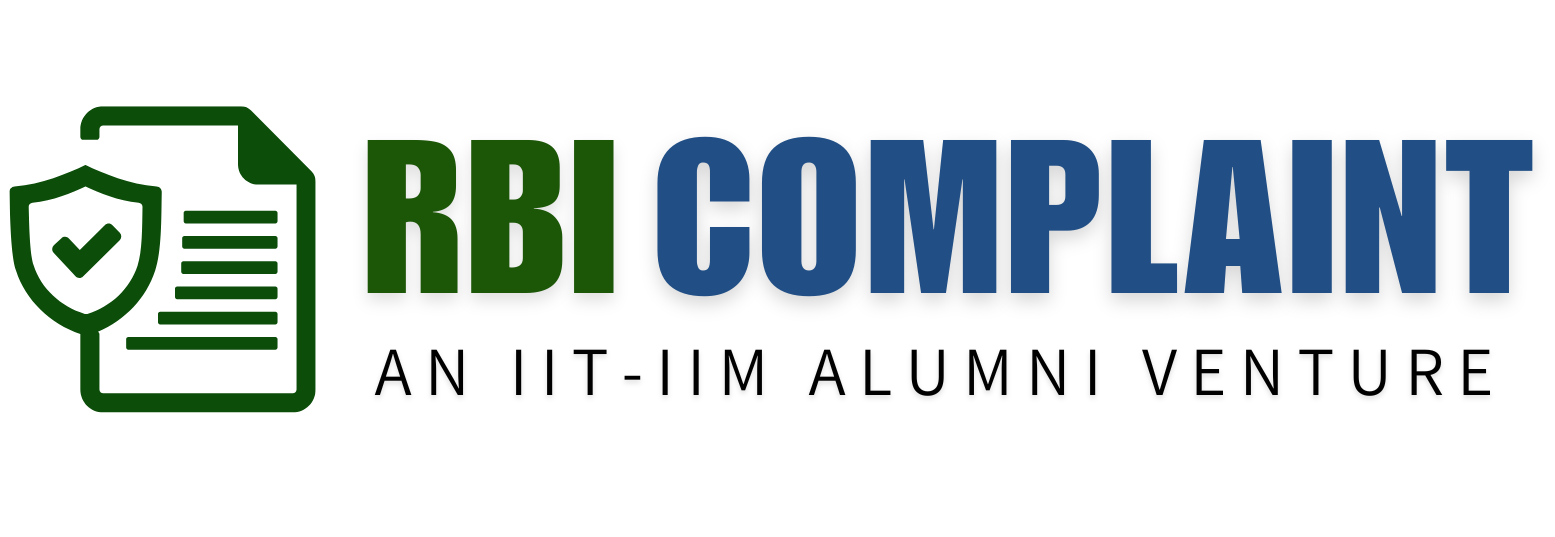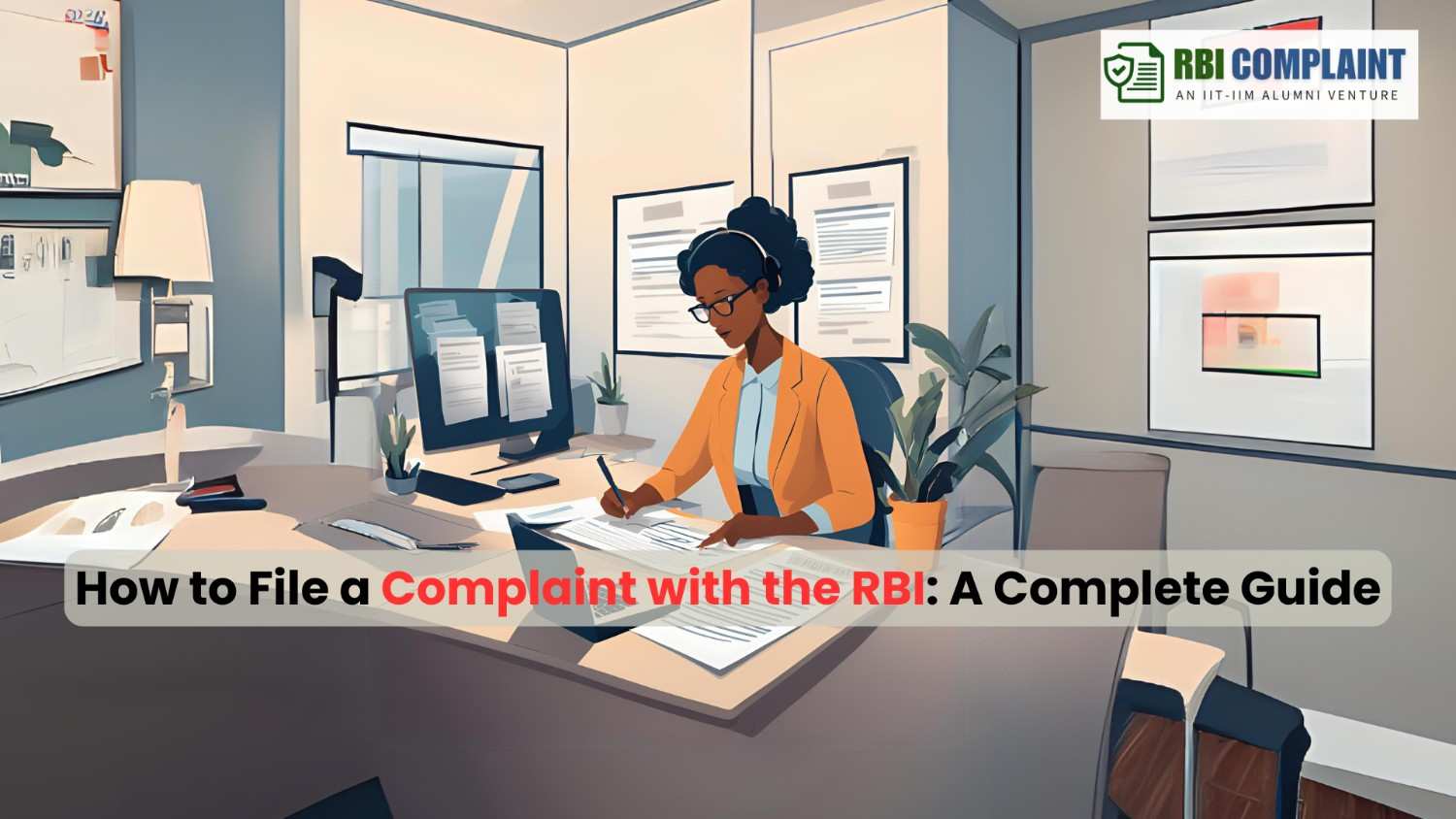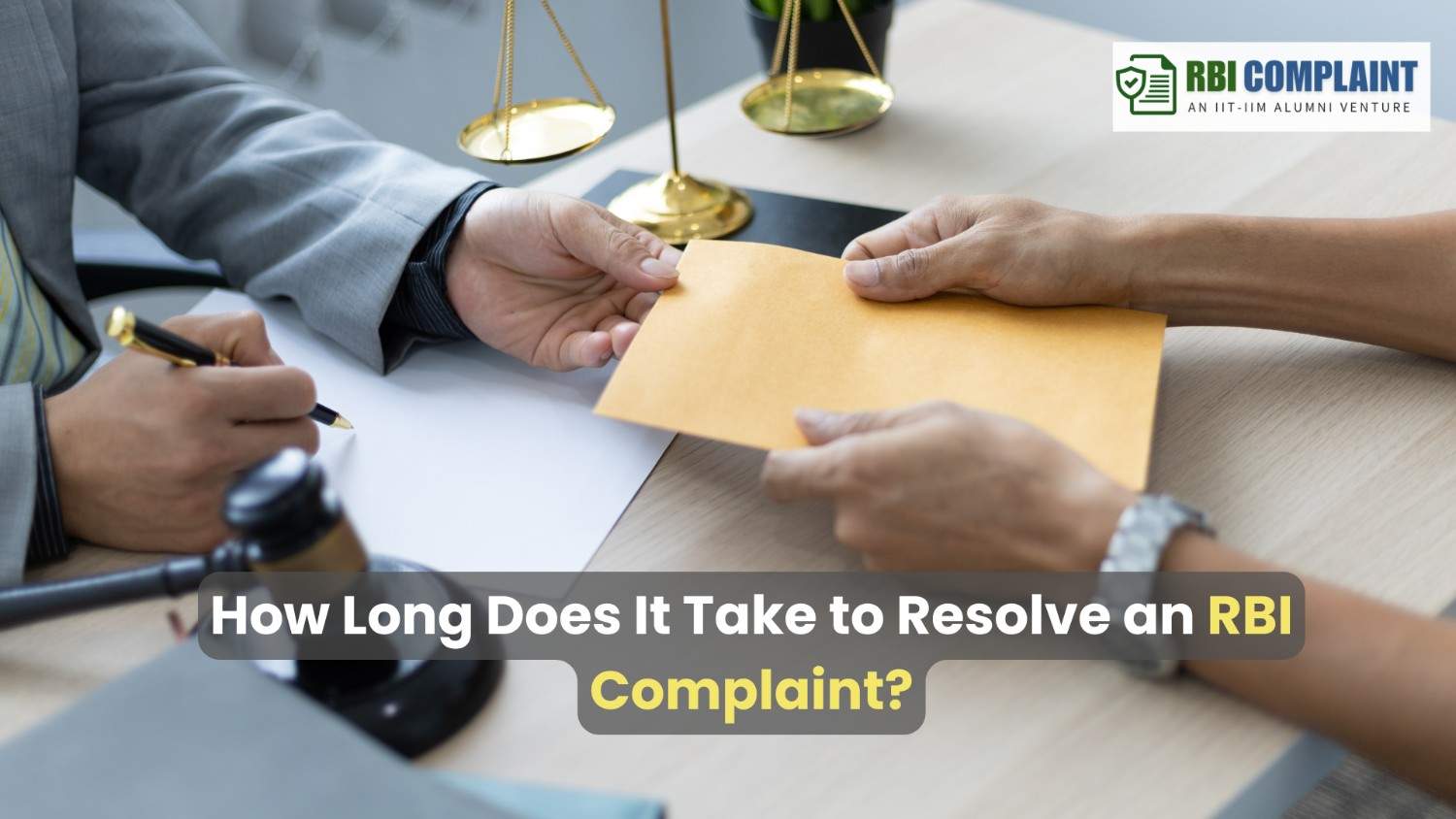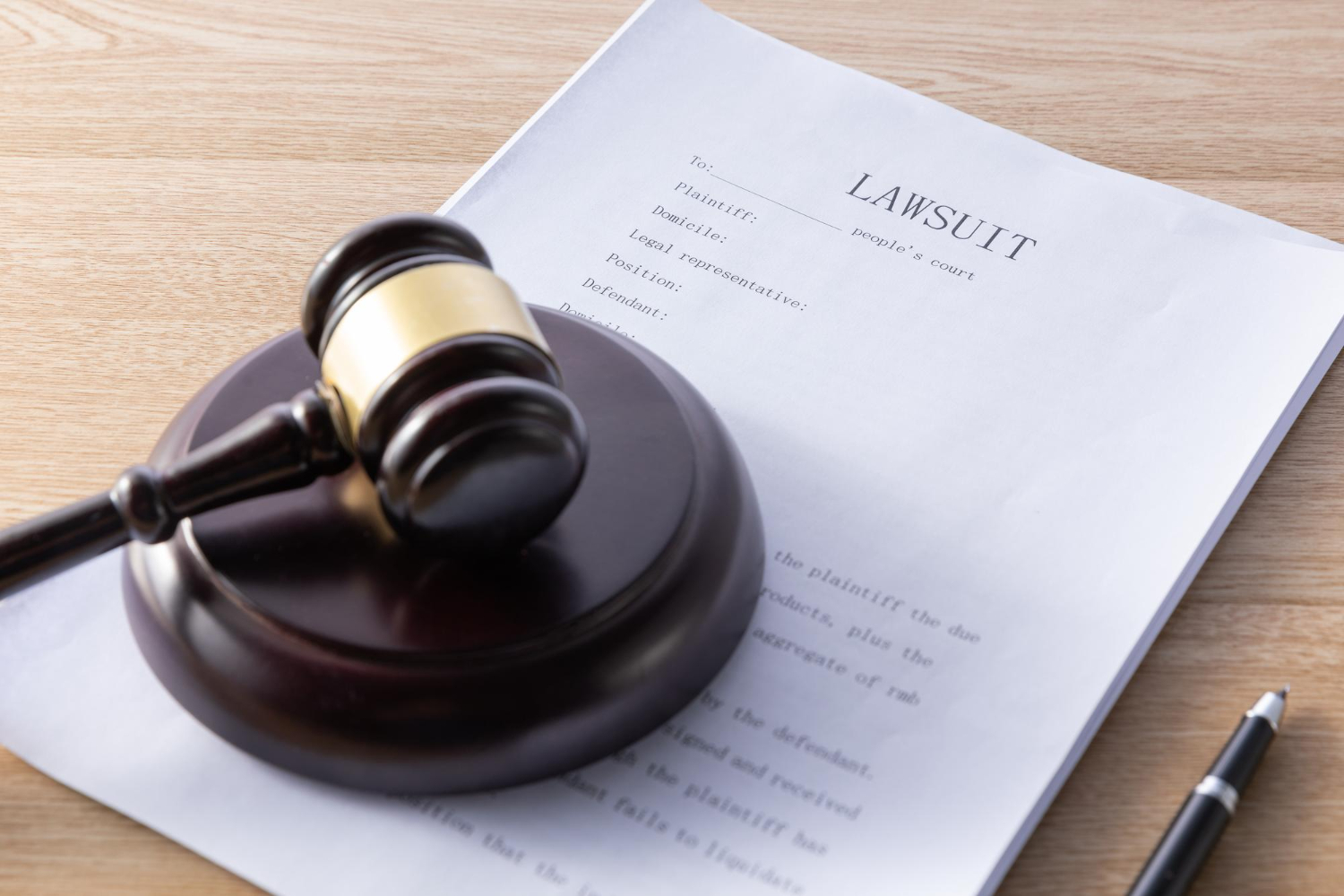· Consumer Protection · 6 min read
Consumer Protection Rights: What You Should Know When Filing an RBI Complaint
Understand your consumer protection rights when filing an RBI complaint. Learn the steps to resolve banking issues and protect yourself from fraud.
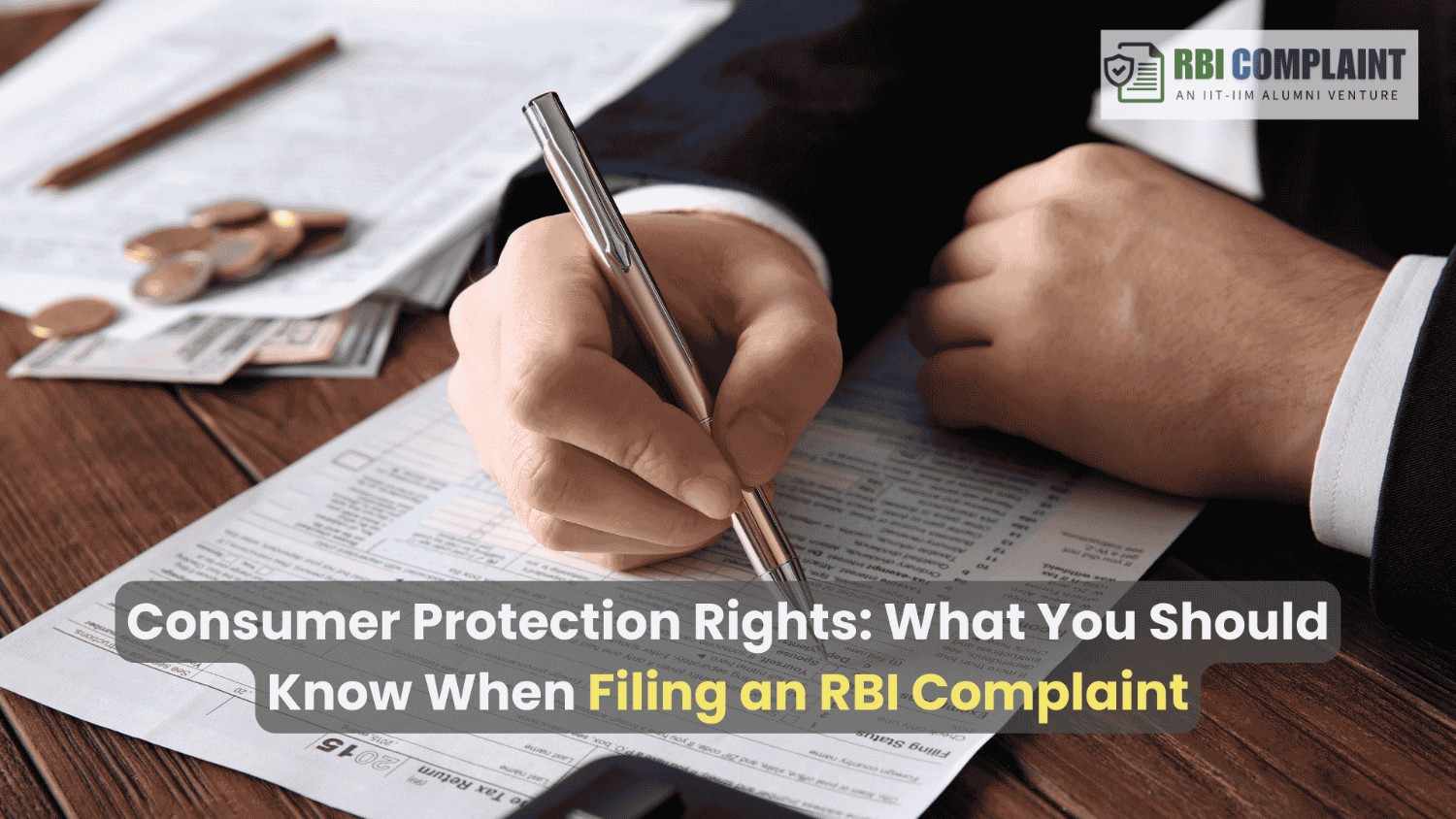
Introduction to Consumer Protection Rights
Every consumer has the right to be treated fairly and transparently, especially when dealing with financial institutions like banks. However, when things go wrong whether it’s unauthorized deductions, issues with loans, or mishandling of funds knowing where and how to file a complaint can make all the difference. This article will guide you through your consumer protection rights in India, particularly focusing on the process of filing a complaint with the Reserve Bank of India (RBI).
Overview of the Reserve Bank of India (RBI)
Role of RBI in Consumer Protection
The Reserve Bank of India, or RBI, is not just the central banking institution responsible for regulating India’s financial sector. It also plays a crucial role in ensuring that banks and financial institutions adhere to the rights of consumers, promoting transparency, and fair practices across the industry.
Why RBI Matters to Consumers
As the regulator of all banks and non-banking financial institutions in India, the RBI is essentially the highest authority that consumers can turn to when they face grievances. Whether it’s discrepancies in banking services or mismanagement of loan agreements, the RBI acts as a mediator to ensure consumers are protected.
What is an RBI Complaint?
Understanding the RBI Complaint Process
An RBI complaint is essentially a formal grievance that a consumer can file against any bank or non-banking financial institution regulated by the RBI. The complaint process is designed to provide consumers with a fair and transparent mechanism to resolve issues that are not settled by the respective banks.
Common Scenarios for Filing an RBI Complaint
Some common scenarios where you might need to file an RBI complaint include:
Unjustified charges on your account
Misleading loan agreements
Delay in resolving fraud-related issues
Problems with credit card transactions
Steps to File an RBI Complaint
Step 1: Identify the Grievance
Before filing a complaint, it’s crucial to identify the specific issue. What is your grievance? Is it unauthorized deductions, or perhaps a loan issue that hasn’t been properly addressed? Having a clear understanding of your problem will make it easier to proceed.
Step 2: Approach the Bank First
RBI mandates that you first approach your bank with the grievance. Most banks have a grievance redressal mechanism, and many issues are resolved directly with the bank without needing further escalation.
Step 3: Escalate to the RBI Ombudsman
If your bank does not resolve the issue within 30 days or provides an unsatisfactory resolution, you can escalate the matter to the RBI Ombudsman.
The Role of the Banking Ombudsman
Understanding the Ombudsman Scheme
The Banking Ombudsman Scheme is a quasi-judicial authority established by the RBI to address consumer complaints. This is a free service available to all consumers who face issues with their bank.
Key Functions of the Banking Ombudsman
The primary function of the Banking Ombudsman is to resolve consumer complaints that have not been addressed by the banks. They have the authority to provide binding solutions, ensuring consumers receive the justice they deserve.
RBI Complaint Portal: CMS (Complaint Management System)
Features of the CMS Portal
The RBI’s Complaint Management System (CMS) is an online platform where consumers can file complaints. It offers a streamlined process to register grievances, track the status, and receive updates on the resolution.
How to Use the RBI CMS Portal
To use the CMS portal:
Visit the RBI CMS website.
Select the type of complaint.
Fill in the necessary details and attach relevant documents.
Submit the complaint for review.
Types of Complaints Handled by RBI
Complaints Related to Banking Services
RBI handles a range of complaints including issues with bank accounts, unauthorized transactions, service delays, and improper loan agreements.
Complaints Against Non-Banking Financial Companies (NBFCs)
If you have taken loans or services from an NBFC and faced issues such as non-transparency or unfair interest rates, RBI is the regulatory body to turn to.
Credit Card Complaints
Credit card-related grievances, such as fraudulent transactions or unreasonable fees, are also handled by the RBI through the complaint process.
What Happens After Filing a Complaint with RBI?
Timeframe for Resolution
After you file your complaint, the RBI or Banking Ombudsman typically resolves the issue within 30 days, although this may vary based on the complexity of the complaint.
Actions Taken by the RBI
Once the complaint is lodged, the RBI investigates the issue and communicates with the bank in question. If necessary, corrective actions are recommended or enforced.
Consumer Rights You Must Know When Filing an RBI Complaint
Right to Fair Treatment
As a consumer, you are entitled to fair treatment from banks and NBFCs. This includes transparency in fees, interest rates, and any terms and conditions.
Right to Timely Resolution
You have the right to expect timely resolution to your complaints. If the bank fails to resolve the issue in 30 days, you can escalate to the Banking Ombudsman.
Right to Compensation
In certain cases, consumers are entitled to compensation for financial losses caused by the bank’s negligence or failure to follow guidelines.
How to Ensure a Strong Complaint
Gather All Necessary Documents
To ensure a strong complaint, gather all related documents—transaction records, emails, bank statements—before filing your complaint.
Be Clear and Specific in Your Complaint
Ensure that your complaint is clear, detailed, and specific. The more organized and precise your complaint is, the faster it can be resolved.
Common Mistakes to Avoid When Filing an RBI Complaint
Incomplete Information
One of the most common mistakes is providing incomplete information. Always make sure to include all relevant details.
Not Following Up
Another mistake is failing to follow up. After filing a complaint, regularly check for updates and responses from the RBI.
Benefits of Filing an RBI Complaint
Consumer Empowerment
Filing a complaint empowers consumers, ensuring they have a voice and that their grievances are taken seriously.
Holding Banks Accountable
By filing complaints, consumers help hold banks accountable for their actions, contributing to an overall improvement in the banking sector.
Alternative Avenues for Consumer Grievances
Legal Remedies and Consumer Courts
If the RBI process does not yield satisfactory results, you can explore legal remedies or approach consumer courts for further action.
Financial Consumer Protection Institutions
There are other institutions in India focused on financial consumer protection that may assist you in resolving complex grievances.
The Impact of RBI Complaints on Banking Policies
RBI’s Role in Improving Consumer-Centric Policies
RBI uses consumer complaints to shape future policies and improve the services provided by banks, ensuring that customer interests are protected.
Changes in Bank Practices
Many changes in bank practices, such as better customer service protocols or reduced fees, have been directly influenced by consumer complaints lodged with the RBI.
Conclusion
Filing a complaint with the RBI can feel like a daunting process, but it’s designed to protect you as a consumer. By understanding your rights, following the correct steps, and utilizing the resources available, you can resolve banking issues and hold financial institutions accountable. Remember, consumer protection is a fundamental right, and the RBI plays a critical role in ensuring it.
